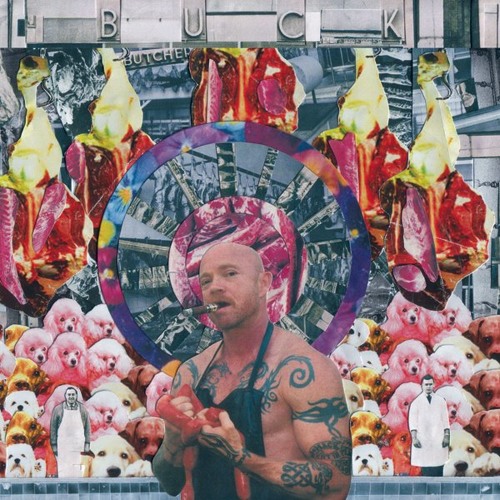Marshland – Nightmares and Dreams on the Edge of London
Gareth E. Rees
Illustrated by Ada Jusic
INFLUX press
“Cocker spaniel by his side, Rees wanders the marshes of Hackney, Leyton and Walthamstow, avoiding his family and the pressures of life. He discovers a lost world of Victorian filter plants, ancient grazing lands, dead toy factories and tidal rivers on the edgelands of a rapidly changing city. Ghosts are his friends. As strange tales of bears, crocodiles, magic narrowboats and apocalyptic tribes begin to manifest themselves, Rees embarks on a psychedelic journey across time and into the dark heart of London.
It soon becomes clear that the very existence of this unique landscape is at threat. For on all sides of the marshland, the developers are closing in…
Marshland is a deep map of the East London marshes, a blend of local history, folklore and weird fiction, where nothing is quite as it seems.” (Taken from the blurb.)
It is hard to write a considered review of a book that has
affected one emotionally. This book is inspiring, emotive and eye-opening.
I have never been to Hackney. I fear London. There is a side
of me that despises it. This is the seat of our utterly disappointing
government, the home of evil bankers, vacuous celebrities and relentless
musical theatre. London decides what to watch, what to visit, what is best and
fashionable to wear, what to listen to, to read, to eat. It is faceless and
monstrous, the twisted soul of our country.
I initially approached this book with some trepidation, did
I want to spend days trawling through a text that explored an area of this
city? After exploring the blurb and the
fantastic quote pulled from its recesses:
“I had become a bit
part in the dengue-fevered fantasy of a sick city.”
I figured that the writer could be singing from the same
hymn-sheet. In many ways his book reveals an attitude far more complex than
that. Whilst he despairs at the encroaching development of London into the
edges of the Marshland in Hackney it is also clear that were it not for earlier
developments such as the railway it would not exist. Significantly it is the
meeting of these two worlds – this island of nature and the bizarre mix of
architecture and industry - that creates a synergy. A little universe in which
the strange will occur. A world in which the mundane and the surreal collide.
This little world sticks its middle finger up at the city with such defiance
that it crackles with an other-worldly energy.
“Wherever you’ve got a margin between two types
of culture and two types of landscape you often get a deeper awareness of the
supernatural and the spiritual.” - Revd. Tony Redman – (taken from M.R.James: Ghost Writer - BBC)
It is this margin that Gareth Rees explores. Like a 21st
Century Kay Harker, he explores a world in which the lines between imagination
and reality are continually blurred. In Masefield’s “The Midnight Folk” we constantly question whether Kay is dreaming
or awake and the sensation is similar here. By placing the real; the
architecture, news reports and stringent historical research, alongside the
unreal, we are plunged into a vortex of monsters, bears, time-slips, shamen and
hallucination.
The book explores the geographic reality of the Hackney
Marshes, but overlaying this in soft swirls of mystical graffiti are utterly
compelling tales inspired by or pulled from Mr Rees’ study of the area. It
appears that his study is a mix of hard graft and rambling through the Marshes with
his dog Hendrix.
Rees introduces us to a man who transforms into a bear, two
unfortunate time-travellers and an unhappy couple who find themselves possessed
and changing into the occupants of a demolished factory. We meet the occupants of
a barge from London’s netherworld, explore the legacy of the Olympic Village
whilst visiting a mystical peddler in contraband antique books. This scratches
the surface and I would urge you to seek out this book to discover more.
What strikes me about this book is how it has opened my eyes
to my own town. I live in Reading which like many urban sprawls contains a
weird mix of old and new. It was on finishing the final chapter that I took my
children out for a walk. We have been to the nature reserve in Reading but on
our way there we decided to try a different route and found ourselves on an old
railway line. This ran high above the water meadows. On one side the beauty of
the floods were framed by pink-grey tower blocks, while on the other streams
and rivers snaked through swathes of green before the drab majesty of the town
dump in the distance. We discovered:
dumped mattresses, ceiling fans and wheelbarrows vomited out
of the backs of broken garden fences
the remnants of an old fire on
the old railway bridge, made from its tumbling bricks
a lake of glass (my son’s words)
two rusted metal fences that framed
the path creating “a gate to Narnia” (my daughter’s words)
It was into this margin that a deer ran across our path.
We were in the town yet not in the town.
We were in the country yet not in the country.
I had discovered the margin between worlds.
I hadn't looked for it before.


